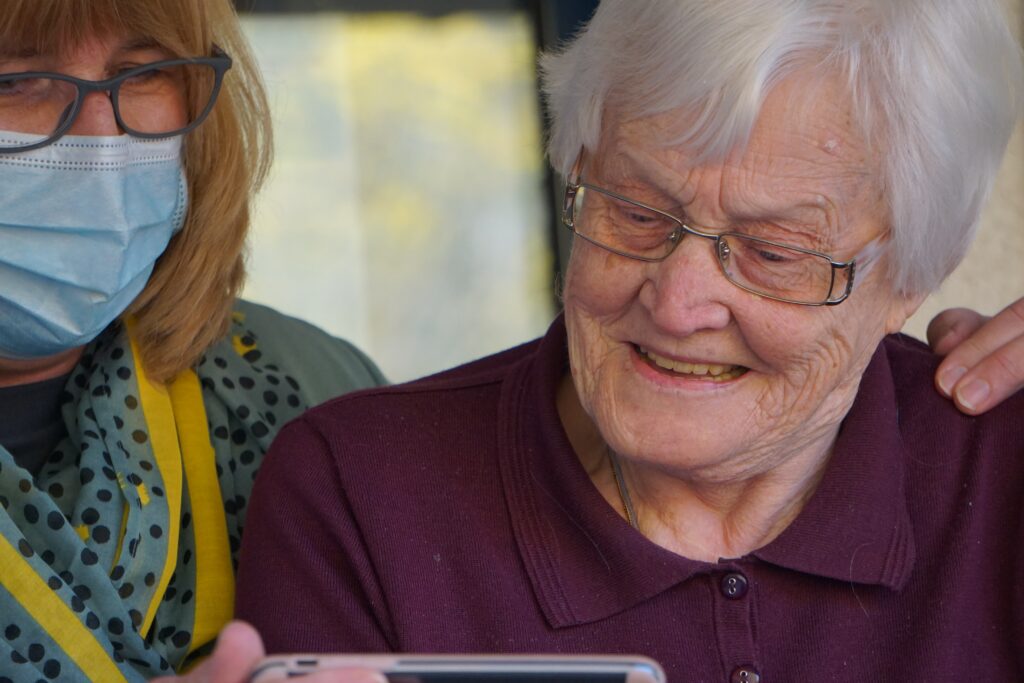Amidst a social care system emergency, Claire Morgan reflects on removing barriers and building trust between unpaid carers and social workers.
Social care is in crisis in Wales, as it is across the UK. While the fundamental solutions lie in the hands of politicians, a focus on relationships, shared understanding and co-produced solutions has potential to enhance the interactions between unpaid carers and social workers.
The social care system in Wales is propped up by hundreds of thousands of unpaid carers. By caring for friends or family who need support due to age, illness, disability or because of a mental health condition, they save Wales billions of pounds a year by providing care statutory services would otherwise have to provide.
The coming winter is set to be a long and difficult one for unpaid carers. Our research has found most are exhausted by their caring duties, many are in poor health themselves and they are increasingly fearful about their ability to afford essentials for themselves and the people they look after.
Social workers, by working directly with families and a number of agencies, are uniquely placed to shine a light on the realities of the system in Wales today
Social workers are also at the forefront of the social care crisis, trying to navigate a path between underfunded public services and an understaffed care sector. They are immensely important to unpaid carers and the people they look after. They play an enabling and empowering role by helping carers to access services that may be available and often undertake Carer’s Needs Assessments that can lead to more formal funded support to prevent needs escalating and protect carer wellbeing.
Carers want their voices, needs and preferences to be meaningfully considered by professionals and this principle runs through the Social Services and Well-being (Wales) Act 2014, though there is extensive evidence that this principle (and indeed many other aspects of the Act) is not being delivered in practice for most carers.
Since 2020 our Carer Aware project, a Welsh Government funded project delivered in partnership by Carers Wales and Carers Trust Wales, has promoted and modelled in practice the co-production between professionals and carers that the Act aspired to embed. Carers Wales brought unpaid carers and social workers together in a series of focus groups to discuss the challenges they both face, break down any misconceptions that existed and reflect on how their interactions could be strengthened.
Supplemented by interviews, a survey and international comparative research, we produced good practice principles and practical tips for social workers in collaboration with the British Association of Social Workers Cymru and Social Care Wales. By centering the experiences of both carers and social workers, we are now rolling out bespoke Carer Aware training to social workers across Wales.
Syniadau uchelgeisiol, awdurdodol a mentrus.
Ymunwch â ni i gyfrannu at wneud Cymru gwell.
If we are to see improvements in the lives of unpaid carers, our guiding aim as a charity, social care must be pulled out of the crisis zone. We know social workers, by working directly with families and a number of agencies, are uniquely placed to shine a light on the realities of the system in Wales today. Because of this, the Carer Aware project is capturing the voices and anonymous feedback of social workers across Wales. They have told us they are overstretched and under-resourced and that there is inadequate community provision to meet presenting needs. Social workers want to do more for the people they support but face immense difficulty arranging care packages.
Significant action must be taken to support the recruitment of care workers and on local authority funding to enable the full restoration of services that carers and social workers rely on. Against this backdrop, our co-produced training is enhancing the knowledge of the social work profession by covering the legal framework in which they must work, including the legal rights of carers contained within the Social Services and Well-being (Wales) Act. Our Good Practice principles remind social workers how to communicate effectively with carers to build open and trusting relationships, the basis on which additional help is most likely to be attained for carers, either by carers meeting their own needs through services available to them or by social workers providing a support plan. We have also started to deliver training for carers to help them get the most out of their relationship with their social worker, using learning from the project to strengthen relationships from different perspectives.
The size of Wales and the relative ease of bringing together all of the key stakeholders has meant we have been able to train social workers in all of the 22 local authority areas and facilitated the co-production on which this project was founded and continues to develop. We believe the Carer Aware project is bringing an innovative approach to tacking issues in social care in Wales. Over the coming years we will continue to roll out the project; training more social workers to add to the hundreds we have already trained, rewarding participation through digital and physical badges, and sharing learning from the project widely including at recent in-person events for social workers and Directors of Social Services in North and South Wales.
Trust, respect and communication are incredibly important in social care, especially when constrained budgets mean a creative and relationship-based response may be one of the best available tools to fill some of the gaps in a creaking social care system. We will continue to do what we can to enhance knowledge, develop skills and share best practice with the same spirit of informed and open dialogue we hope to embed across social care in Wales and would welcome approaches from anyone who wishes to join us in these efforts. Further information on the project can be found on our Carer Aware website.
All articles published on the welsh agenda are subject to IWA’s disclaimer.





